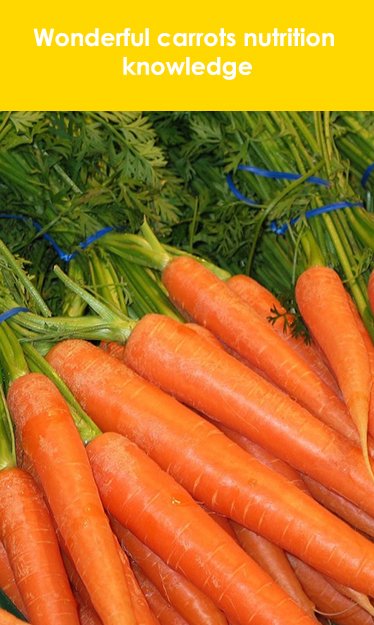Carrots – the vibrant orange root vegetable that adorns dinner plates worldwide – are more than just a source of delicious flavor. They’re a nutritional powerhouse, packed with essential vitamins, minerals, and antioxidants that contribute to a healthy life.
Whether you’re looking to boost your vision, strengthen your immune system, or reduce your risk of chronic diseases, carrots can be a valuable addition to your diet. Let’s delve deeper into the world of carrot nutrition and explore the science-backed benefits they offer.

Carrots: A Nutritional Breakdown
Carrots are a low-calorie food, with a single medium carrot containing around 41 calories. They’re primarily composed of water (around 88%) but boast an impressive nutrient profile, including:
- Beta-carotene: The star of the show! This carotenoid is converted to vitamin A in the body and plays a crucial role in vision health.
- Fiber: Both soluble and insoluble fiber contribute to gut health, digestion, and feelings of fullness.
- Vitamin A: Essential for vision, immunity, and cell growth.
- Vitamin C: An antioxidant that supports immune function and collagen production.
- Vitamin K1: Important for blood clotting and bone health.
- Potassium: A mineral that helps regulate blood pressure and muscle function.
- Folate: Crucial for cell division and DNA synthesis, especially important during pregnancy.
- Manganese: Aids in enzyme function, metabolism, and antioxidant defenses.
These nutrients work synergistically to promote overall health and well-being.
Eye Health Hero: How Carrots Support Vision
The age-old adage about carrots being good for your eyes holds true. The abundance of beta-carotene in carrots is converted to vitamin A in the body. Vitamin A is a vital component of rhodopsin, a protein in the retina that enables us to see in low light conditions. Deficiencies in vitamin A can lead to night blindness and other vision problems.
Studies have shown that a diet rich in beta-carotene may help prevent age-related macular degeneration (AMD), a leading cause of vision loss in older adults.
Carrots and a Robust Immune System
Carrots are a good source of vitamin C and antioxidants, which play a key role in strengthening the immune system. Vitamin C helps white blood cells function effectively, the body’s first line of defense against pathogens [3].
Antioxidants in carrots, like beta-carotene and other carotenoids, combat free radicals, unstable molecules that can damage cells and contribute to chronic diseases. By neutralizing free radicals, antioxidants help keep the immune system strong and protect against illness.
Digestive Dance: How Carrots Promote Gut Health
The fiber in carrots, both soluble and insoluble, plays a vital role in promoting healthy digestion. Soluble fiber dissolves in water and forms a gel-like substance in the gut, which helps slow down digestion and regulate blood sugar levels.
Insoluble fiber, on the other hand, adds bulk to stool and promotes regularity, preventing constipation and other digestive issues.
Can Carrots Help Reduce the Risk of Chronic Diseases
Several studies suggest that including carrots in your diet may help reduce the risk of chronic diseases like cancer and heart disease.
The antioxidants in carrots, particularly beta-carotene, may have protective effects against certain cancers [7]. However, more research is needed to fully understand the mechanisms at play.
Carrots may also contribute to heart health by lowering blood cholesterol levels and reducing inflammation [8]. The high fiber content can further benefit heart health by promoting healthy blood sugar control.
It’s important to note that while carrots offer a range of health benefits, they should be part of an overall healthy diet that includes a variety of fruits, vegetables, and whole grains.
Fun Facts about Carrots and Tips for Inclusion in Your Diet
- Carrots come in a variety of colors, including orange, purple, yellow, red, and even white! Each color offers a slightly different nutrient profile.
- Baby carrots are simply mature carrots that have been chopped and shaved down. They offer the same nutritional benefits as their larger counterparts.
- When storing carrots, keep them refrigerated in a sealed plastic bag. This will help them stay crisp and fresh for several weeks.
Here are some creative ways to incorporate carrots into your diet:
- Enjoy them raw with hummus or a healthy dip.
- Roast them with olive oil, herbs, and spices for a delicious side dish.
- Add them to stir-fries, soups, and stews for extra flavor and nutrients.
- Shred them into salads or slaws for a refreshing crunch.
- Juice them for a quick and healthy dose of carrot power.
Beyond the Basics: Unveiling Unique Perspectives on Carrots
While the health benefits of carrots are well-established, there’s more to these crunchy roots than meets the eye. Here are some unique perspectives on carrots to consider:
- Carrots and Cognitive Health: Some studies suggest that the antioxidants in carrots may play a role in cognitive function and may even help protect against age-related cognitive decline. The jury is still out, but incorporating carrots into a brain-healthy diet is certainly a worthwhile strategy.
- Carrots for Weight Management: Due to their low-calorie content and high fiber content, carrots can be a valuable tool for weight management. They can help you feel fuller for longer, reducing cravings and overall calorie intake [10].
- Carrots and Skin Health: Beta-carotene, the star nutrient in carrots, may also contribute to healthy skin. It may help protect against sun damage and promote overall skin health [11]. While not a substitute for sunscreen, carrots can be a part of a well-rounded approach to maintaining radiant skin.
A Global Look at Carrots: Cultural Significance and Culinary Delights
Carrots have a long and fascinating history, cultivated for over 4,000 years across various cultures. Here’s a glimpse into the world of carrots beyond your plate:
- Origins: The carrot is believed to have originated in Central Asia, with purple and yellow varieties predating the familiar orange ones we know today.
- Cultural Significance: In some cultures, carrots are symbols of good luck and prosperity. In China, for instance, carrots are often given during the Lunar New Year to symbolize good luck for the coming year.
- Culinary Delights: Carrots are a versatile ingredient used in cuisines worldwide. From carrot halwa, a sweet pudding popular in India, to Korean carrot salad (kimchi), and Moroccan carrot salad (zaalouk), carrots add flavor and texture to dishes across the globe.
Interesting Facts about Carrot Consumption
- The Emoji: Did you know the carrot emoji () is one of the most used vegetable emojis? Perhaps a testament to the global appeal of this crunchy root vegetable.
- Carrot Diversity: There are over 300 varieties of carrots available worldwide, each with its unique flavor profile and color.
Sustainable Practices: Growing and Enjoying Carrots Responsibly
Here are some tips for enjoying carrots in an eco-friendly way:
- Buy Local: Opt for locally grown carrots whenever possible to reduce your carbon footprint associated with transportation.
- Embrace Imperfections: Don’t be afraid of cosmetically imperfect carrots. Imperfectly shaped carrots are just as nutritious and delicious as their picture-perfect counterparts.
- Reduce Food Waste: If you find carrot tops wilting, don’t toss them! Carrot tops are edible and can be used in pestos, soups, or stir-fries.
By making small changes, you can enjoy the benefits of carrots while minimizing your environmental impact.
In conclusion, carrots are more than just a delicious and colorful addition to your plate. They’re a nutritional powerhouse with a rich history and cultural significance. By incorporating carrots into your diet and embracing sustainable practices, you can unlock a world of health benefits while making a positive impact on the environment. So, the next time you reach for a snack, consider grabbing a crunchy carrot – your body and the planet will thank you!
